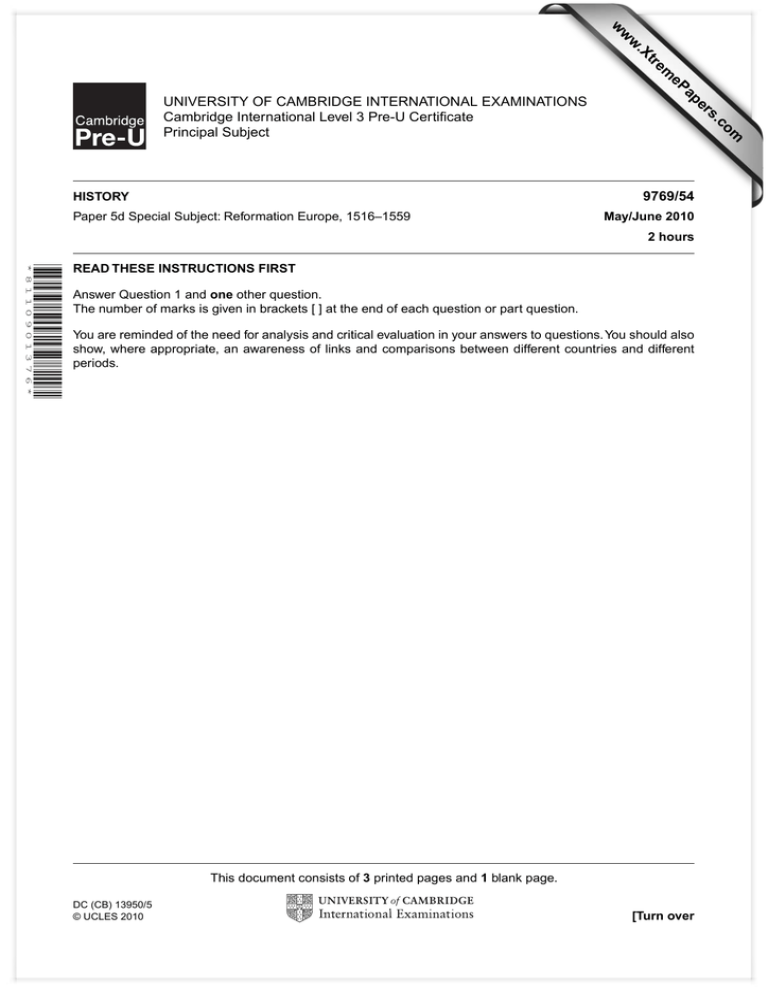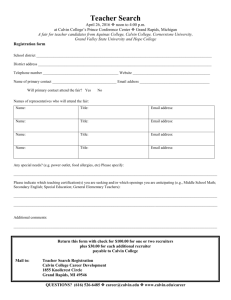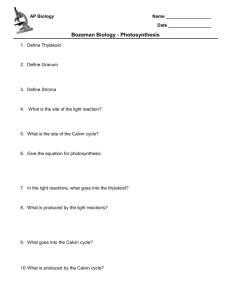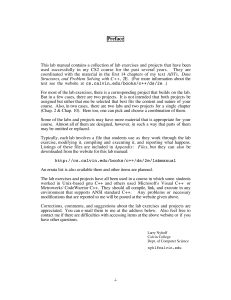www.XtremePapers.com
advertisement

w w ap eP m e tr .X w om .c s er UNIVERSITY OF CAMBRIDGE INTERNATIONAL EXAMINATIONS Cambridge International Level 3 Pre-U Certificate Principal Subject 9769/54 HISTORY Paper 5d Special Subject: Reformation Europe, 1516–1559 May/June 2010 2 hours *8110901376* READ THESE INSTRUCTIONS FIRST Answer Question 1 and one other question. The number of marks is given in brackets [ ] at the end of each question or part question. You are reminded of the need for analysis and critical evaluation in your answers to questions. You should also show, where appropriate, an awareness of links and comparisons between different countries and different periods. This document consists of 3 printed pages and 1 blank page. DC (CB) 13950/5 © UCLES 2010 [Turn over 2 Answer the following question. Nominated topic: The Protestant Reformation (2) 1 Study all the following documents and answer all the questions which follow. In evaluating and commenting upon the documents it is essential to set them alongside, and to make use of, your own contextual knowledge. A Calvin seeks to enlist the support of Francis I of France. When I first set my hand to this work, nothing was further from my mind, most glorious King, than to write something that might afterwards be offered to Your Majesty. My purpose was solely to transmit certain rudiments by which those who are touched with any zeal for religion might be shaped to true godliness. I undertook this task especially with our French countrymen in mind. But I perceived that the violence of certain wicked persons has dominated your realm and that there is no place in it for sound doctrine. For this reason, I ask you in justice to undertake a full enquiry into the case which until now has been handled without due process of law. They do not cease to attack our doctrine and to defame it with names that make it hated and suspected. And we are unjustly charged, too, with intentions of a kind which we have never in the least encouraged, namely that we contrive the overthrow of kingdoms. Preface to Institutes of the Christian Religion, 1535. B Henry II of France announces policies for the suppression of Calvin’s followers in France (i) which meets with a response from Calvin in correspondence with a fellow reformer (ii). (i) We forbid all our subjects to write, to send money or otherwise to favour those who have gone out of the kingdom to reside in Geneva or in other countries separated from the union of the Church and the obedience of the Apostolic Holy See, on pain of being declared favourers of heretics and as such disobedient persons. All carriers of letters coming from Geneva will be arrested and if it is found that the said letters are directed towards diverting our subjects away from the truth and the observation of our faith and religion they will be proceeded against as heretics and disturbers of public repose and peace. The Edict of Chateaubriant, 1551. (ii) Some frightful laws have been published. What has hitherto been granted to sorcerers, forgers and thieves, that they have a right of appeal to a sovereign court, is now taken away from Christians, whom ordinary magistrates, without any appeal, may order to be delivered to the flames forthwith. John Calvin, Letter to Heinrich Bullinger, 15 October 1551. C Calvin writes to the French Protestant noble Antoine de Bourbon, King of Navarre. Sire, the sighs and groans of so many true believers deserve your attention. You should be courageous and come to their aid. Many will think it repugnant, I know, that you should try to sustain the cause of Jesus Christ. But if you, Sire, who ought to be the instrument of all the children of God, keep silent, who else will be bold enough to open his mouth and say a word? If the circumstances do not allow you to stand up for what is right with entire freedom, and condemn what is evil, the least that you can do is to ask for an investigation so that many poor people are not condemned without good reason. Letter, 14 December 1557. © UCLES 2010 9769/54/M/J/10 3 D In a revised edition of his Institutes Calvin reminds his readers of their duties to God and to lay rulers. There is a twofold government in man; one aspect is spiritual, whereby the conscience is instructed in reverence towards God; the second is political, whereby man is educated for the duties of citizenship. The one we may call the spiritual kingdom, the other the political kingdom. If we are cruelly vexed by an inhuman prince let us first of all remember those our own offences against God which doubtless are chastised by these sufferings. And secondly, let us consider that it is not for us to remedy these evils: for us it remains only to implore the aid of God. It is impossible to resist the magistrate without resisting God. However to that obedience which I have shown to be due to the authority of rulers there is always one exception. It must not tempt us away from obedience to Him to whose will the desires of kings must be subject. John Calvin, Institutes of the Christian Religion, 1559. E A modern historian stresses the militant aspects of Calvin’s teaching. Calvin himself was a deeply embattled leader, and he breathed the authentic spirit of militancy that hovered like a heavy thunder cloud over France in the build-up to the tragic Wars of Religion. It is indeed true that Calvin uttered explicit warnings against the use of force. However the whole tenor of his teaching was in the direction of resistance and confrontation, and indeed of active political conflict with Catholic authorities, especially in France. His awareness of developments in his homeland led him to look for deliverance from tyranny to the increasing numbers of French nobles who were flocking to the Calvinist banner; and his religious viewpoint brought him to equate a tyranny which might and ought to be resisted with the religious oppressions of France’s Catholic monarchy. Michael Mullet, Calvin, 1989. (a) How far does Document C corroborate Calvin’s expectations as to the role of lay rulers in defending religious reformation as expressed in Document A? [10] (b) How convincing is the evidence provided by this set of documents for the view that the effect of Calvin’s teaching was to confront lay authority rather than to support it? In making your evaluation, you should refer to contextual knowledge as well as to all the documents in this set (A-E). [20] Answer one of the following questions. Where appropriate your essay should make use of any relevant documents you have studied as well as contextual knowledge. 2 How is the prolonged rivalry between Charles V and the Valois monarchy best explained? 3 How important a role did the reformed religious orders play in the Catholic and Counter Reformations? [30] 4 Assess the importance of religious beliefs in provoking the Peasants’ Wars in Germany. © UCLES 2010 9769/54/M/J/10 [30] [30] 4 BLANK PAGE Copyright Acknowledgements: Question 1 Source E © Michael Mullett; Calvin; Routledge; 1989. Permission to reproduce items where third-party owned material protected by copyright is included has been sought and cleared where possible. Every reasonable effort has been made by the publisher (UCLES) to trace copyright holders, but if any items requiring clearance have unwittingly been included, the publisher will be pleased to make amends at the earliest possible opportunity. University of Cambridge International Examinations is part of the Cambridge Assessment Group. Cambridge Assessment is the brand name of University of Cambridge Local Examinations Syndicate (UCLES), which is itself a department of the University of Cambridge. © UCLES 2010 9769/54/M/J/10



